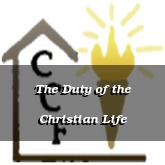Jesus said to [the Pharisees who accused him of allowing his disciples to break the law by working on the Sabbath], "Haven't you read in the Scriptures what David did when he and his companions were hungry? He went into the house of God, and he and his companions broke the law by eating the sacred loaves of bread that only the priests are allowed to eat. And haven't you read in the law of Moses that the priests on duty in the Temple may work on the Sabbath? I tell you, there is one here who is even greater than the Temple!"
—Matthew 12:3-6 NLT
Jesus emphasized that we must look beyond legalistic interpretations of Scripture like the Pharisees used in the previous verses (Matthew 12:1-2). David technically "broke the law by eating the sacred loaves of bread," but he and his companions were not condemned because of of severe need in an emergency. The priests serving in the Temple on the Sabbath's were violating the general Sabbath prohibition against work but were doing work that needed to be done on the Sabbath to bless God's Temple (Numbers 28:9-10; 1 Chronicles 9:30-32). We must look beyond legalistic requirements and listen for the heart of God. Jesus is greater than David and greater than the Temple. For him, the work of God must continue every day, including holy days, because that is the will of God. The Sermon on the Mount (chapters 5-7 of Matthew) has multiple examples of the will of God shown in love for others and consideration of others being more important than just legalistic requirements.
Lord God Almighty, thank you for giving me Scripture to read about your work and relationship with your people of Israel. Please help me to find your will, not just a set of rules, in Scripture. But Father, more than just knowing what you desire of me, please help me to do it. In Jesus' name, I pray. Amen.
Ⓒ 1996-2021 Heartlight, Inc. This material may not be reproduced in part or whole for commercial use without written consent. What Jesus Did! is written by Phil Ware and is available in book form. Scripture quotations are taken from the Holy Bible, New Living Translation, copyright ©1996, 2004, 2007, 2013, 2015 by Tyndale House Foundation. Used by permission of Tyndale House Publishers, Inc., Carol Stream, Illinois 60188. All rights reserved.

Continue reading...
—Matthew 12:3-6 NLT
Key Thought
Jesus emphasized that we must look beyond legalistic interpretations of Scripture like the Pharisees used in the previous verses (Matthew 12:1-2). David technically "broke the law by eating the sacred loaves of bread," but he and his companions were not condemned because of of severe need in an emergency. The priests serving in the Temple on the Sabbath's were violating the general Sabbath prohibition against work but were doing work that needed to be done on the Sabbath to bless God's Temple (Numbers 28:9-10; 1 Chronicles 9:30-32). We must look beyond legalistic requirements and listen for the heart of God. Jesus is greater than David and greater than the Temple. For him, the work of God must continue every day, including holy days, because that is the will of God. The Sermon on the Mount (chapters 5-7 of Matthew) has multiple examples of the will of God shown in love for others and consideration of others being more important than just legalistic requirements.
Today's Prayer
Lord God Almighty, thank you for giving me Scripture to read about your work and relationship with your people of Israel. Please help me to find your will, not just a set of rules, in Scripture. But Father, more than just knowing what you desire of me, please help me to do it. In Jesus' name, I pray. Amen.
Related Scripture Readings
Ⓒ 1996-2021 Heartlight, Inc. This material may not be reproduced in part or whole for commercial use without written consent. What Jesus Did! is written by Phil Ware and is available in book form. Scripture quotations are taken from the Holy Bible, New Living Translation, copyright ©1996, 2004, 2007, 2013, 2015 by Tyndale House Foundation. Used by permission of Tyndale House Publishers, Inc., Carol Stream, Illinois 60188. All rights reserved.
Continue reading...

 Hello
Hello 

 **Prayer Request Updates!**
**Prayer Request Updates!**  **Urgent Prayers Needed:**
**Urgent Prayers Needed:** **Let’s also pray for:**
**Let’s also pray for:**
 Ali's condition needs prayers. @PraisyJames asks we lift Ali's healing and faith in Jesus.
Ali's condition needs prayers. @PraisyJames asks we lift Ali's healing and faith in Jesus. @GraceL needs guidance finding a new home in Charlotte.
@GraceL needs guidance finding a new home in Charlotte.
 Let's pray for a peaceful Christmas for
Let's pray for a peaceful Christmas for 
 Please keep Ochurn in your prayers and let’s also support Grace L in her housing search. Reflecting on the Christmas season and let’s uplift Ochurn and everyone in prayer for healing and restoration as @PraisyJames called for us to come together in prayer for Ali’s healing.
Please keep Ochurn in your prayers and let’s also support Grace L in her housing search. Reflecting on the Christmas season and let’s uplift Ochurn and everyone in prayer for healing and restoration as @PraisyJames called for us to come together in prayer for Ali’s healing.

